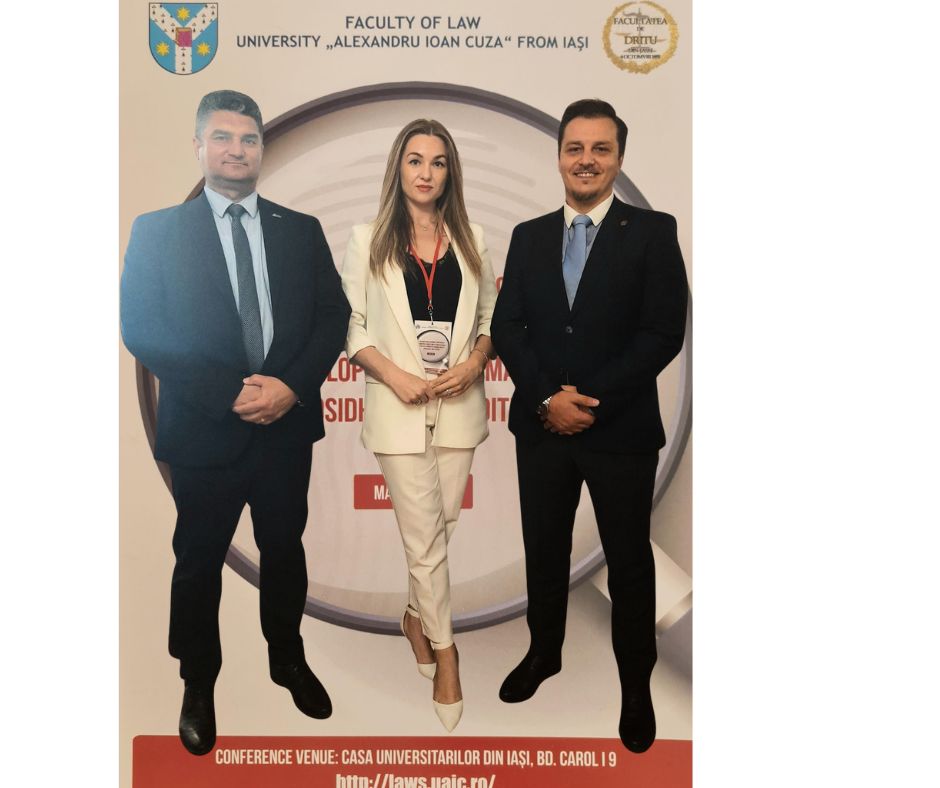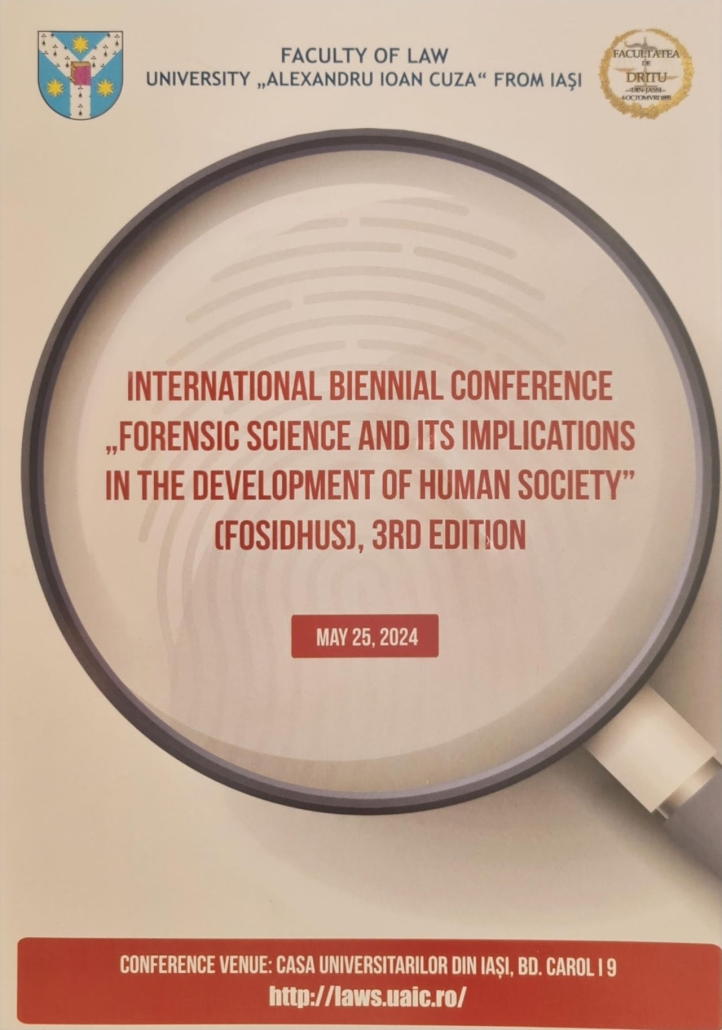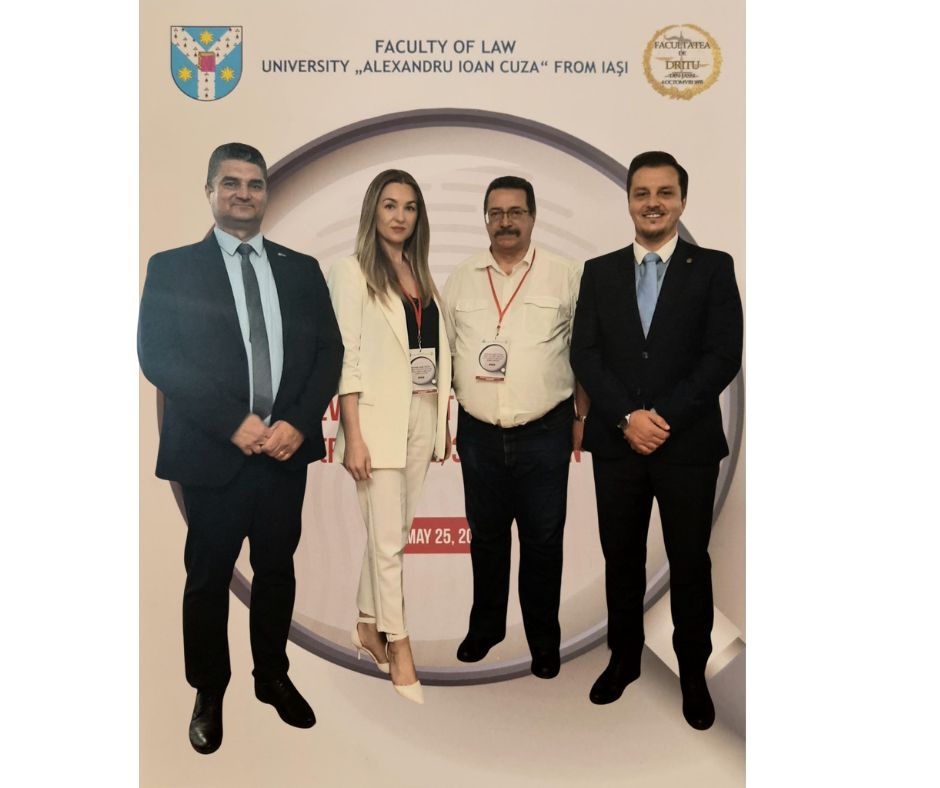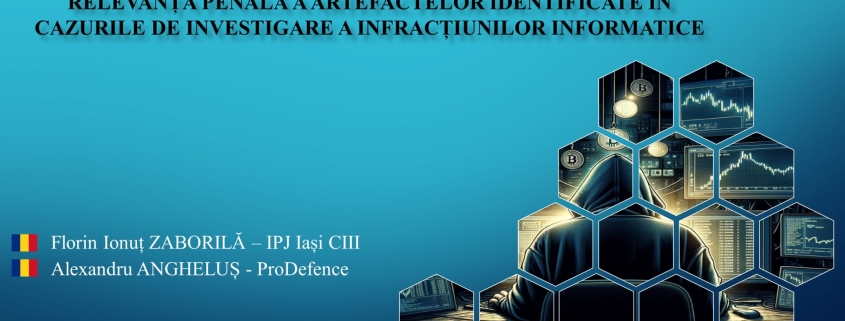The Criminal Relevance of Artifacts Identified in Cybercrime Investigations
🌟 “The Criminal Relevance of Artifacts Identified in Cybercrime Investigations”🌟
We are excited to announce our participation in the 3rd edition of the International Conference “Forensic Science and its Implications in the Development of Human Society” (FOSIDHUS), which took place on May 25, 2024, at Casa Universitarilor in Iași. This edition’s theme was “The Challenges of Forensic Science in the Digital Age.”
At this prestigious event organized by the Faculty of Law of “Alexandru Ioan Cuza” University of Iași, we had the honor of presenting our paper titled “The Criminal Relevance of Artifacts Identified in Cybercrime Investigations.” Together with my colleague Florin Zaborilă, we discussed the importance of digital artifacts in the context of criminal investigations and their impact on judicial procedures.



We would like to extend our special thanks to the conference organizers, especially Mrs. Ancuța Elena Frantz, for her dedication and efforts in organizing this successful event. We also thank the National Institute of Forensic Expertise, represented by Mr. Gabriel Dumitru Păduraru, forensic expert, for the organizational support.
We appreciate all the participants and colleagues for their presence, involvement in valuable discussions, and exchange of ideas! We are glad to be part of this academic and professional community dedicated to advancing forensic science.
Presentations made by specialists from the private sector at conferences like the International Conference “Forensic Science and its Implications in the Development of Human Society” are pivotal in advancing knowledge and practice in forensic science. Here are key reasons why these presentations are invaluable:
- Bringing real-world expertise: Specialists from the private sector regularly engage with cutting-edge technologies and face diverse practical challenges in their daily work. Their presentations provide valuable real-world insights and experiences to the academic and professional community, effectively bridging the gap between theory and practice.
- Sharing advanced techniques and tools: The private sector is often at the forefront of technological innovation. Presentations by these specialists can introduce new techniques, tools, and methodologies that have been developed and tested in real-world scenarios, providing attendees with current knowledge and practical applications.
- Enhancing collaboration: Conferences provide a platform for fostering collaboration between the private sector and academic or governmental institutions. Such collaboration can lead to the development of comprehensive and effective strategies for tackling cybercrime and other forensic challenges.
- Influencing policy and best practices: Insights from the private sector can inform the development of policies and best practices within forensic science. Their experiences can highlight gaps in current approaches and suggest improvements, thereby enhancing the overall effectiveness of forensic investigations.
- Professional development and networking: Presentations by private sector specialists offer attendees opportunities for professional development. Participants can learn about the latest trends and developments in the field and engage in networking that may lead to future collaborations, job opportunities, or partnerships.
- Stimulating innovation and research: By presenting new findings and case studies, private sector experts can inspire further research and innovation within the academic community. Their contributions can help identify new areas of study and spur the development of novel solutions to forensic challenges.




